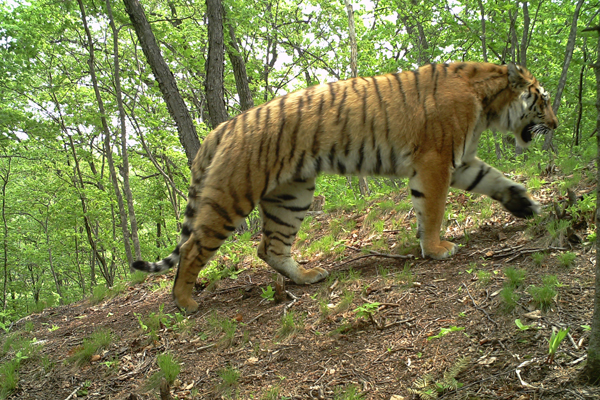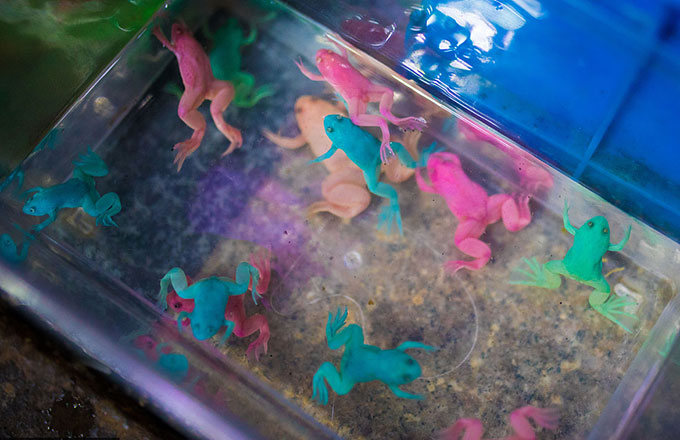Administration for tiger and leopard national park inaugurated
 |
|
A Siberian tiger photographed in Hunchun, Jilin province, in 2015. [Photo/China Daily] |
CHANGCHUN -- The administration for the much-anticipated tiger and leopard national park was officially inaugurated Saturday in Changchun, capital of northeast China's Jilin Province.
Launch of of the Northeast Tiger and Leopard National Park Administration is a big step forward in protection of the endangered animals, said Zhang Jianlong, head of the State Forestry Administration.
The state-owned natural resources and assets management bureau of the national park was also launched Saturday.
"The establishment of the two organizations means increased protection efforts of Siberian tigers, Amur leopards and other types of natural resources," Zhang said. "We will enhance supervision and patrol to make sure that the environment is well protected."
The Northeast Tiger and Leopard National Park will cover more than 1.46 million hectares. About 71 percent of the area is in Jilin and the rest in the adjacent Heilongjiang Province.
Construction of the park is scheduled to be complete in 2020.
A contest was also started Saturday to design a logo for the park. According to Chen Xiaocai, an official with the park administration, the logo should combine images of the Siberian tiger and Amur leopard with Chinese elements.
The contest will last till September 30. The winner will receive an award of 50,000 yuan ($7,500). Those who are interested can log on the park website to learn more.
Zhao Li, head of the administration, said that the national park aims to create a stable habitat for wild Siberian tigers and Amur leopards.
"It will become a good example of cross-region cooperation of wildlife protection," Zhao said.
Siberian tigers are one of the world's most endangered species. Wild Siberian tigers predominantly live in northeast China and Russia's far east. The population is below 500. The Amur leopard was put under top national protection in 1983 with only about 50 living in the wild along the Sino-Russian border.





















